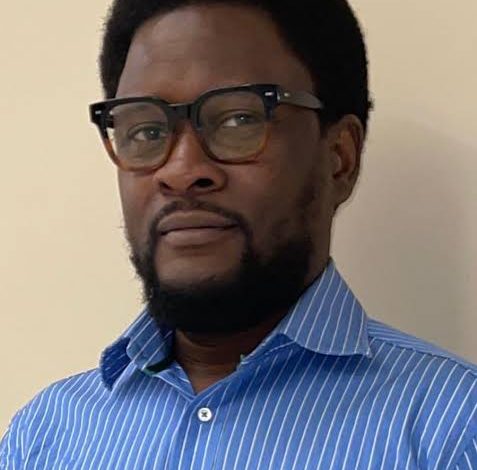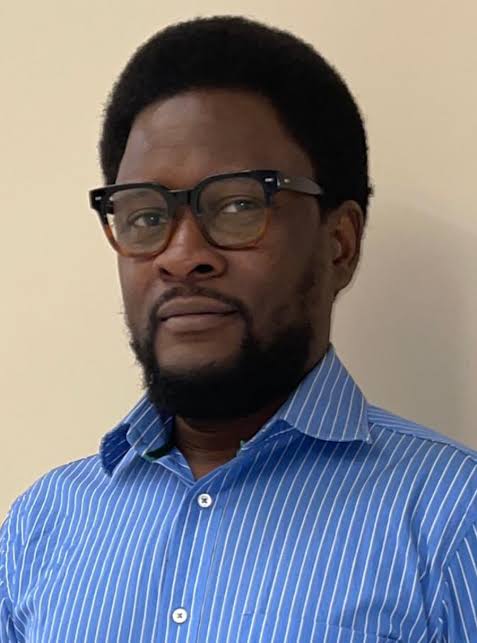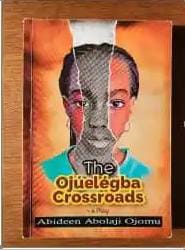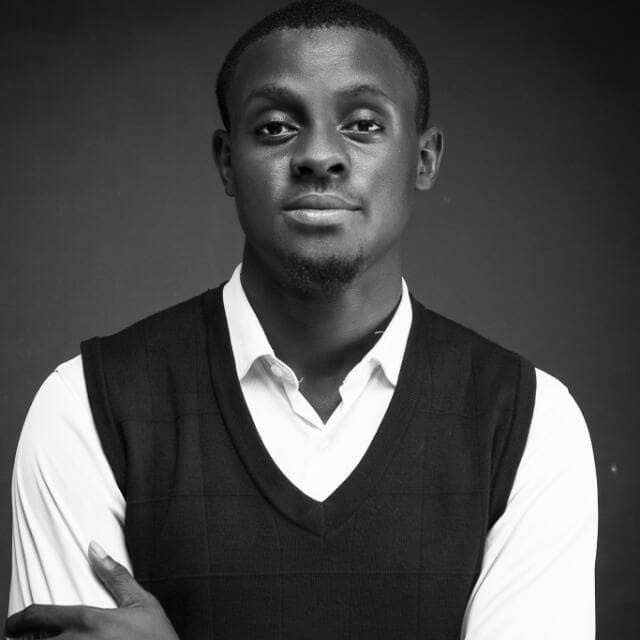Nigeria, Africa need to find new ways to resolve development impasse, says Ojomu

Abideen Abolaji Ojomu’s new play The Ojuelegba Crossroads is an intriguing play that proposes a synthesis of the past and present for a better future for Africa. In this interview, Ojomu restates his motivation for writing the play and what readers can take away from it
By Anote Ajeluorou
Oluelegba is a symbol of confusion from Fela’s music of that name. Exactly why did you choose it as title for your play? What was your motivation for writing the play?
Ojuelegba is a very important place not only in Lagos but on the African continent due to its peculiar and cultural antecedent. It has been a point of cultural convergence as our ancestors venerate the “elegba or Legba” deity at this location. Over the centuries, development stretches it steel and concrete limbs across the remote forest, and Ojubo-Elegba now shortened to Ojuelegba finds itself at a very important crossroads connecting important settlements at its four cardinals. These bordering settlements advanced as a result of social imperatives, but the crossroad remains a bottleneck thereby preventing the consolidation of the disparate developments into a single formidable whole. The crossroads can no longer hold up in its primary responsibility of providing the required link for the stronger whole. Based on the existential and development crises posed by the crossroad at which every African nation finds itself, it is required to find new ways to resolve this impasse.
The shrine of the deities, the masquerades, and the ancestors are right around the corners. Can we kneel before our ancestors and ask them how they built the Benin Kingdom, Borgu Kingdom, Fulani Empire, Hausa Kingdoms, Kanem-Bornu Empire, Kwararafa Kingdom, Ibibio Kingdom, Nri Kingdom, Nupe Kingdom, Oyo Empire, Songhai Empire, Warri Kingdom, Ile Ife Kingdom, and Yagba East Kingdom? Our ancestors’ greatness enthralled them before buying their (Western) lies and “Things Fell Apart”. The book is a metaphor for us to rediscover the greatness of our ancestors and walk in the shadow of their greatness. The metaphor of the book and the headings are perhaps clarion summon for us to remove all bottlenecks on the path of our development as a country.
And Siju Alatupa’s successful court judgment against the big man Senator Gbewiri where he’s awarded damages seems rare and almost unbelievable. Were you being sarcastic here?
No, I was not being sarcastic. The justice system allows defendants to file a counter-claim if they feel any wrong when they are being sued.
Sergeant Alade’s situation seems ambivalent – a medal for a man who more or less supervised his colleagues’ murder for his own idea of national good and cohesion. That seems outrageous isn’t it?
To see Sergeant Alade’s action as outrageous implies being judgemental and great art is devoid of judgment. I would rather like to see him as a man who rises above sundry emotions of hatred, judgment, and revenge. His training required him to kill every enemy he met, but he was overtaken by humanity when he saw the youth and promise in Oluchi. Humanity requires a huge prize from us and only the great can pay that prize. Perhaps the most important take away is to ask ourselves what our actions will be if we were in that situation. Will it be eager to kill in revenge or will we allow ourselves to be humane?
‘Japaing’ seems the norm for the abnormality that governance has foisted on a majority of Nigerians. You, for instance, live abroad, but you avoided that concept even as you condemn the socio-political condition in the country. Why did you not propose ‘japaing’ for characters like Mitaya, Olarenwaju, Sangila, who could do with such reprieve?
Firstly, I had to speak to friends in Nigeria to understand the meaning of the word ‘Japaing’ like you used it. I assumed you are questioning my leaving Nigeria and why I chose to leave. Regarding your question which I quote “but you avoided that concept even as you condemn the socio-political condition in the country. Why did you not propose ‘japaing’ for characters like Mitaya, Olarenwaju, Sangila, who could do with such reprieve?” I left the country to study in Canada; I have obtained a PG Diploma in Business Administration and I am currently studying for a Master in Public Policy and Water Resources Development in Developing Countries. Looking at these programmes, you will notice that these are skills required for a developing country like ours. To summarize that I ‘Japaing’ based on your own words without proper understanding of the context project me in the wrong light and perhaps insults my pursuit of national development. As you will notice, the book is a book of metaphor; reading it literarily leads to drawing limited conclusion and being judgmental. The exodus from Nigeria is due to many reasons, and the reason for leaving is different for everybody. For some it is a way out of a dire situation; for others, it is to seek education that can help develop to their country. I fall in that category, and I might not be able to answer for others.

Author of The Ojuelegba Crossroads, Abideen Abolaji Ojomu
Structurally, your play seems convoluted and even complex, with dialogue being a cross between prose and poetry. Is this symbolic of your theme as well or your style of writing generally?
Brilliant question. This is perhaps my style of writing. As an African, I belong to a group of people whose language is the most important cultural artefacts. Our language itself is poetry and our food is art and our clothing is a form of religion. I try to mirror this in my writing so that we can present the entire scope of culture to the world. The play is complex yet simple to follow and its complexity derives from it rich use of metaphors, silence and a combination of dialogue and poetry. It also delivers a complex yet clear interplay of characters, voices, movement, tension, space, time and language. The theme of the play speaks more to the subconscious than the conscious, hence the use of complex tools to eloquently deliver words and concepts that are not expressed within the play. To empower audience and readers to embark on a journey of self reassessment and set the ground for the emergence of a new social agenda that allows for a new and greater nation. The structure of the play is one that sets to mirror life and all its complexity and to empower audience to simplify that complexity.
Of course, literature need not be prescriptive. But in an era of President Tinubu’s ‘Renewed Hope’ agenda viewed against the backdrop of your play’s hopelessness, whither Nigeria?
Great works of Literature are timeless and art endures through time and space. To limit art to a particular time. The new or of renewed hope is a beautiful thing, but it fits into the play. It is an event that has come and we really hope it lasts, so we can move the country forward. The book does not address the moment; it is addressing the past, the present and future. It primarily focuses on the past, so we can partake in the new dispensation of hope equipped with lesson of past failures, so that the renewal of the moment does not become hopelessness again in the near future. The play is a big question mark asking us about our choices, as we try to take our country to the next level of greatness. The Renewed Hope is a great opportunity to rewrite our national narrative but it must be approached within the context of our past failures, so that we don’t fail again.
Tunde is a character study in his quaint ways. But is he possibly the ace or missing puzzle in a crossroad that Ojuelegba represents?
Tunde is only a metaphor for the instruction of ancestor and the mental slavery imposed on us by the colonials. He is also a representation of what makes us all human. Flaws, regrets, shame and guilt and the need to admit them rather than deny them during our journey to self realization. His relationship with Sangila who happens to be a sage is a cold and distant one which reflects mutual respect and this represents a metaphor for the love our ancestors have for selfless knowledge.
A powerless Alatupa seems the antithesis for the all-powerful Senator Gbewiri and Governor, as he checkmates them every inch of the way. How have your countrymen and women failed to be as lucky or cunning as Alatupa in confounding the political monsters devouring them?
I believe we have, though this is matter of perspective. That we are able to hold together as a nation irrespective of all the issues we are having is a big win. The daily struggles and success of every Nigerian represents a big win and huge victory over the prevalent atmosphere of disfranchisement.
* Ojomu’s The Ojuelegba Crossroads is shortlisted for The Nigeria Prize for Literature 2023 drama category.



